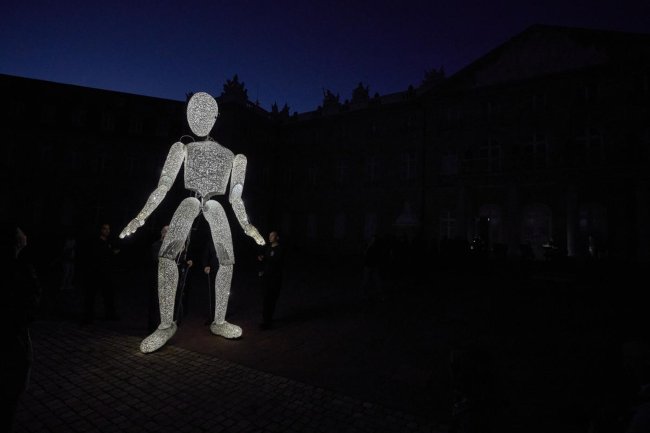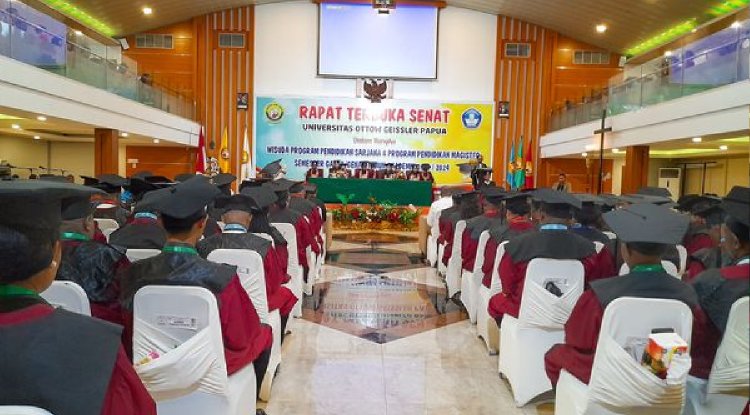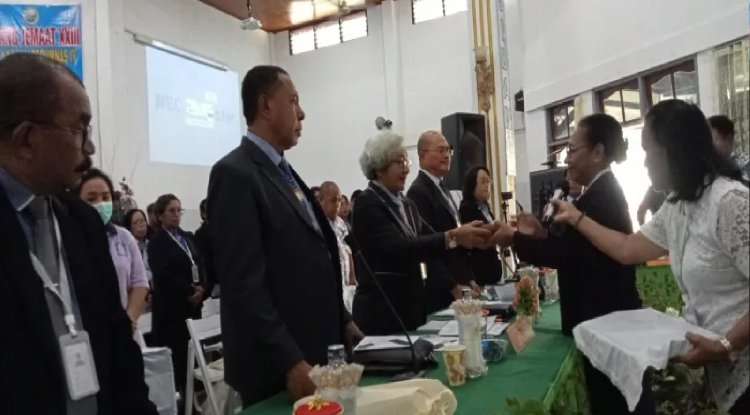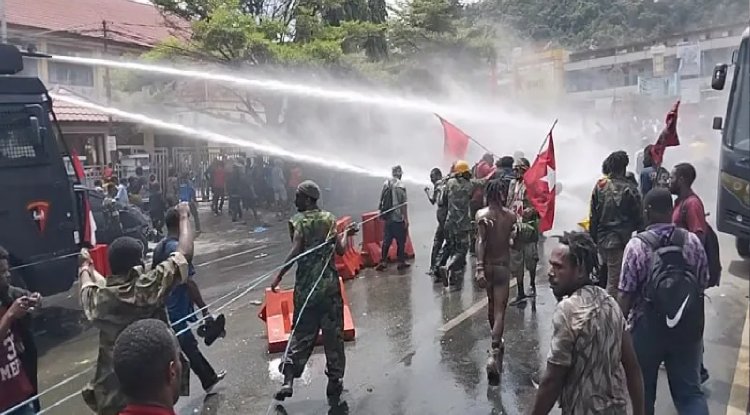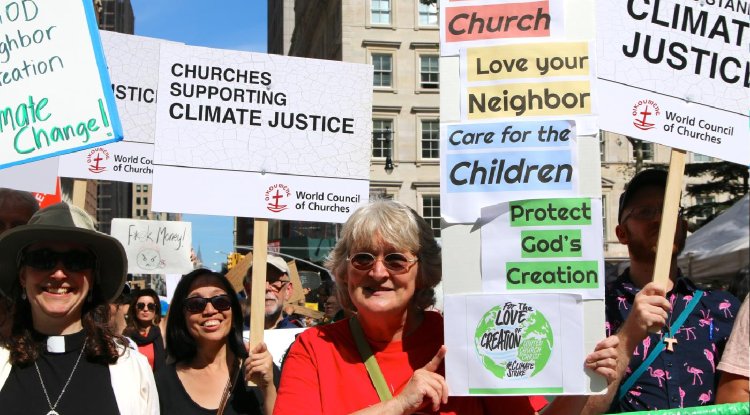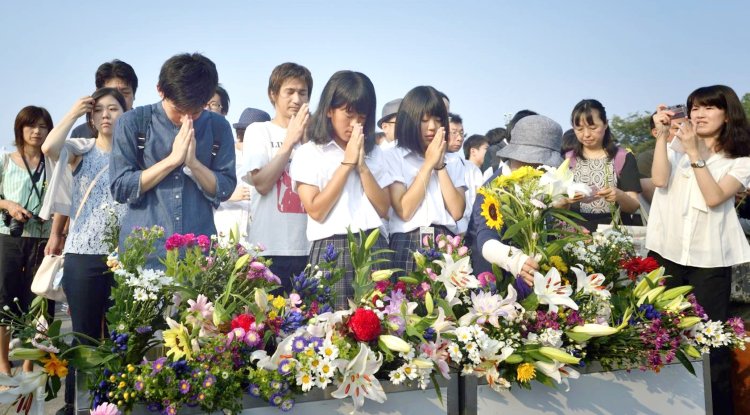THE SYMPOSIUM EMPHASIZED THAT COLLABORATION BETWEEN FAITH-BASED GROUPS AND THE UNITED NATIONS IS ESSENTIAL.
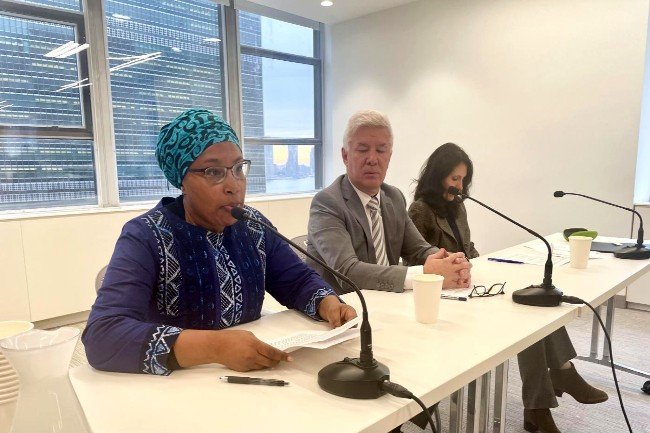
23 January 2024
Alice Wairimu Nderitu, UN Special Advisor for the Prevention of Genocide (UNOSAPG), spoke at the high-level segment of the 10th Annual Symposium on the role of faith-based organizations in international affairs, accompanied by the session moderators, Mr. Rudelmar Bueno de Faria, Secretary General of the ACT Alliance, and Mrs. Simona Cruciani, Senior Political Affairs Officer, UN Office UNOSAPG. Photo: Marcelo Schneider/WCC
The World Council of Churches (WCC) and a coalition of faith-based and UN partners organized a symposium that attracted UN representatives, representatives from international faith-based organizations, and other experts.
Important time
Rudelmar Bueno de Faria, secretary general of the ACT Alliance, underlined the importance of the tenth-year symposium.
"For years, this has been a space where UN agencies and faith-based organizations have worked together," he said. “We know that it is important for us to solve the problems we face today in a good and cooperative way.”
The Secretary General of the WCC, Rev. Prof. Dr. Jerry Pillay, said in the opening session that the tenth year of the symposium was a very important event.
"We believe that God has placed us as caretakers and guardians of this world, both human and planetary," he said. "This landmark moment not only marks a decade of robust dialogue and collaboration but also underscores the indispensable role of faith-based actors in shaping a world where human rights are at the core of our collective aspirations."
UN Under-Secretary-General and Special Adviser on Genocide Prevention, Alice Wairimu Nderitu, agreed that the tenth anniversary of the symposium was an important moment.
He explained the tasks of his office and the UN Genocide Convention, as well as how important it is to work with faith-based groups to fulfill those tasks.
According to him, "the Genocide Convention was the first human rights treaty adopted unilaterally," and "today 153 countries have ratified the Genocide Convention."
The UN Office for the Prevention of Genocide points to the worldwide risk of genocide.
It also shares some stories about the Polish-Jewish lawyer Raphael Lemkin, who in 1944 introduced the term "genocide." "It was very important to him because he lost 49 members of his family in the Holocaust."
"We know we can never work alone," he said, ending his remarks by stressing how important it is for the UN to work with faith-based groups, comparing them to instruments in a symphony orchestra.
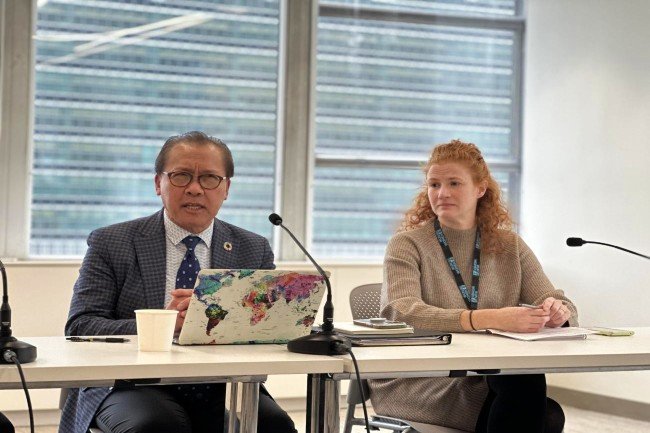
Rev Dr Liberato Bautista, Assistant General Secretary for United Nations and International Affairs, General Board of Church and Society of The United Methodist Church, and Ms Emily Kenney, Policy Specialist, Rule of Law, UN Women. Photo: Valter Muniz/WCC
Three meetings
Three panel discussions—"upholding human dignity: respecting rights, evolving humanity"," gender equality, peace, and the eradication of violence," andkey learnings for a just, peaceful, and inclusive future"—kicked off at the opening of the symposium.
Following each session, the audience receives questions via the internet.
Peter Prove, director of the Church Commission on International Affairs of the WCC, spoke during the third panel discussion on key learnings. He spoke about the WCC's efforts to encourage inclusive citizenship in Iraq.
He described the success of the project to change Iraq's national education curriculum, which encourages inclusive education and learning methods.
According to Prove, "first of all, the experience generates a truly critical helplessness towards the recognition and importance of the other.".
"We have to try, from the religious side, to be more involved, build that bridge, and not expect others to build bridges towards us," he said. He also talked about the serious consequences that can occur if human rights are removed from peace and security. In the religious sector, there is no hermetic seal.
De Faria stressed the importance of cooperation to achieve justice and peace in his closing remarks.
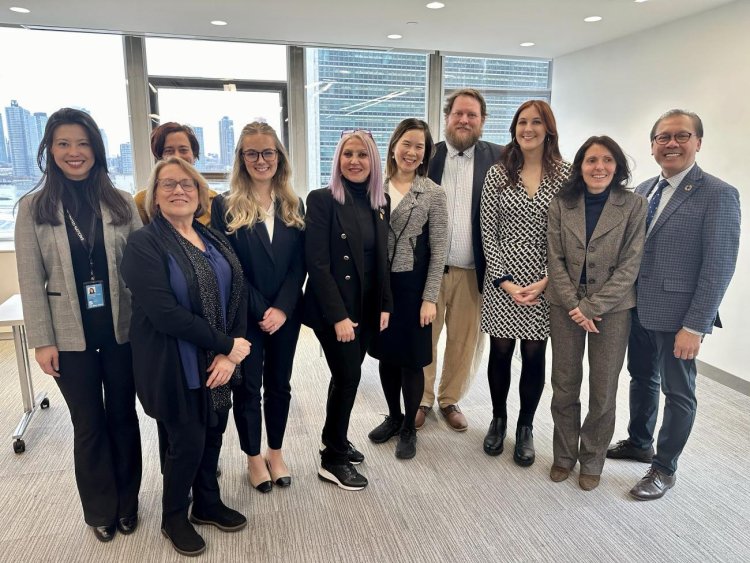
The planning team of the 10th Annual Symposium on the Role of Religion and Faith-based Organizations in International Affairs./ Photo: Marcelo Schneider/WCC
"When it comes to the solutions you find, collaboration is paramount."
News Sources: https://www.oikoumene.org/news/symposium-highlights-why-collaborations-between-un-faith-based-groups-are-paramount
What's Your Reaction?










